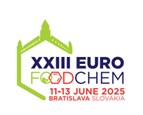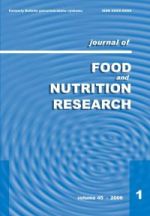Scientific journal
Journal of Food and Nutrition Research
Summary No. 1 / 2014
Białek, A. – Tokarz, A. – Zagrodzki, P.
Conjugated linoleic acids in diet of female rats inhibit the breast cancer formation in their offspring
Journal of Food and Nutrition Research, 53, 2014, No. 1, s. 39-50
Agnieszka Białek, Department of Bromatology, Medical University of Warsaw, Banacha 1, 02-097 Warsaw, Poland.
E-mail: agnieszka.bialek@wum.edu.pl, tel.: +48 22 5720745, fax: +48 22 5720785
Summary: The aim of this study was to examine whether the enrichment of female rats diet with conjugated linoleic acids (CLA) influences breast cancer formation in their offspring, and to evaluate fatty acids distribution in tissues of progeny. The female offspring of animals with different diet modifications (oil or CLA) administered during pregnancy and breastfeeding was divided within groups into two subgroups: (1) – fed the same modified fodder as mothers, (2) – fed the standard fodder. Carcinogenic agent (7,12-dimethylbenz[a]anthracene) was administered to the offspring on 50th day of life. Mammary tumours occurred in all groups but the cancer morbidity decreased both among animals whose mothers were supplemented with CLA and among those animals whose diet was enriched in CLA also in adult life (p = 0.0322). Two CLA isomers present in dietary supplement in equal amounts were detected in serum and in tumour tissues, but the concentration of rumenic acid was higher. The mean concentration of CLA was higher in serum of animals without mammary tumours. Dietary supplementation also influenced concentrations of other fatty acids. Our results indicate that CLA decrease the risk of mammary carcinogenesis in rats. Their higher concentration in serum correlates with lower susceptibility to chemically induced tumorigenesis.
Keywords: conjugated linoleic acids; rumenic acid; breast cancer
Download:
(pdf, 149.81 Kb, 3378x)










